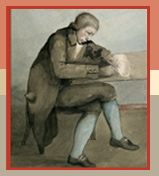Project Publications
Geraint H. Jenkins, Ffion Mair Jones and David Ceri Jones (eds.), The Correspondence of Iolo Morganwg (3 vols., Cardiff, 2007)
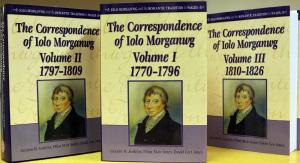
One of the main treasures of the National Library of Wales is its collection of Iolo Morganwg's letters. These letters were published in three substantial volumes. The collection contains 1260 letters, spanning the period 1770 until 1826, and they are a mirror to Iolo's own colourful and troubled life. Between the letters themselves, the extensive footnotes, and the substantial introduction, this edition - the first of its kind - includes more than a million words.
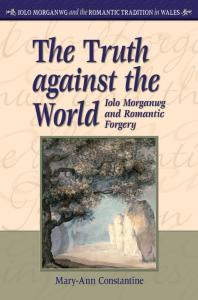
During Iolo Morganwg's lifetime Britain was obsessed with literary forgery. Quoting extensively from Iolo's unpublished manuscripts, this book reveals the unexpected connections and hidden influences behind Britain's most successful (and hence, perhaps, least visible) Romantic forger. It explores Iolo's own strongly-held ideas about the Truth-historical, literary and religious - and shows how he responded to the work and the criticism of both James Macpherson and Thomas Chatterton. It also shows how, after death, his ideas affected the Breton writer Hersart de La Villemarqué, whose ordination as a Iolo-style bard in 1838 helped to bring about a Celtic cultural revival in Brittany. The subject sits neatly at the intersection of two currently popular critical domains: British Romantic literary forgery, and 'Celticism', a subject which explores the development of mutual contact between the Celtic-speaking regions, as well as the complex relationship between the peripheries and the centre.
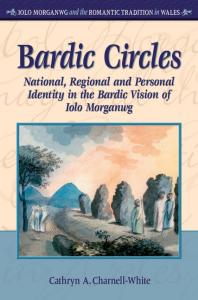
Bardism, Iolo Morganwg's idiosyncratic bardo-druidic vision, was an alternative, radicalized version of Wales's genuine professional poetic tradition. Its inventive Primitivist framework which, crucially, hinged on the twin concepts of barbarity and civility, served to validate contemporary Welsh image and identity. It furnished the nation with an enviable pantheon of heroes and provided it with its first indigenous national institution: the Gorsedd of the Bards. By asserting liberty, equality, freedom of speech and opposition to war, Bardism repudiated tired contemporary stereotypes of the barbarous Celt. Equally motivated by regional and personal concerns, Bardism's intellectual framework also accommodated the primacy of Glamorgan and proved a valuable means of self definition for Iolo, allowing him to shape his own posthumous reputation. This volume's discussion of the layers of national, regional and personal identity in Bardism also brings into focus bardic nationalism and the tensions involved in the expression of national and regional loyalties. It also includes a selection of Iolo's highly stimulating writings on these subjects.
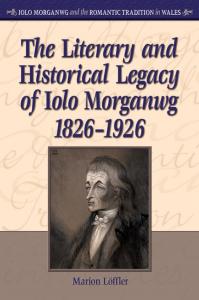
Selected parts of the legacy of Iolo Morganwg exerted a powerful influence on the Welsh and European imagination in the long nineteenth century. This volume charts the cultivation of the myth of Iolo Morganwg in the service of Welsh nationhood; the development of Iolo's Gorsedd from romantic idea to modern national institution and the international impact of his druidism; the Europe-wide reception of his additional materials for a 'theoretical history' of Wales; and its eventual critique by the first generation of professional scholars in Wales. An Epilogue explains why the political and religious radicalism and poetry of Iolo Morganwg were overlooked by nineteenth-century Europe, and a selection of documents allow insights into the language and mindset of Iolo's legatees.
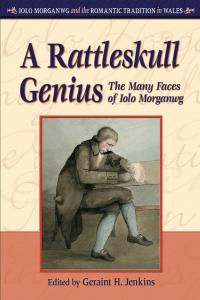
Iolo Morganwg is arguably the most extraordinary figure in the entire cultural history of Wales. Since his long and turbulent career unfolded against a backdrop of improvement, industrialization, evangelicalism, enlightenment and romanticism, it is not surprising that a myriad Iolos emerged: the multi-gifted stonemason, the druidic bard, the labouring poet, the romantic myth-maker, the consummate forger, the political radical, the agricultural commentator, the apostle of anti-trinitarianism, and many others. His life was riddled with apparent ironies, paradoxes and contradictions, and the aim of this stimulating volume is to re-evaluate his diverse interests and to celebrate the multifaceted achievements of a flawed but endlessly fascinating self-styled 'rattleskull genius'.
Cathryn Charnell-White, Barbarism and Bardism: North Wales versus South Wales in the Bardic Vision of Iolo Morganwg (Aberystwyth, 2004)
Mary-Ann Constantine, 'Combustible Matter': Iolo Morganwg and the Bristol Volcano (Aberystwyth, 2003)
Geraint H. Jenkins, Facts, Fantasy and Fiction: The Historical Vision of Iolo Morganwg (Aberystwyth, 1997)
Geraint H. Jenkins, 'Perish Kings and Emperors, but Let the Bard of Liberty Live' (Aberystwyth, 2006)
Hywel Gethin Rhys, 'A Wayward Cymric Genius': Celebrating the Centenary of the Death of Iolo Morganwg (Aberystwyth, 2007)
